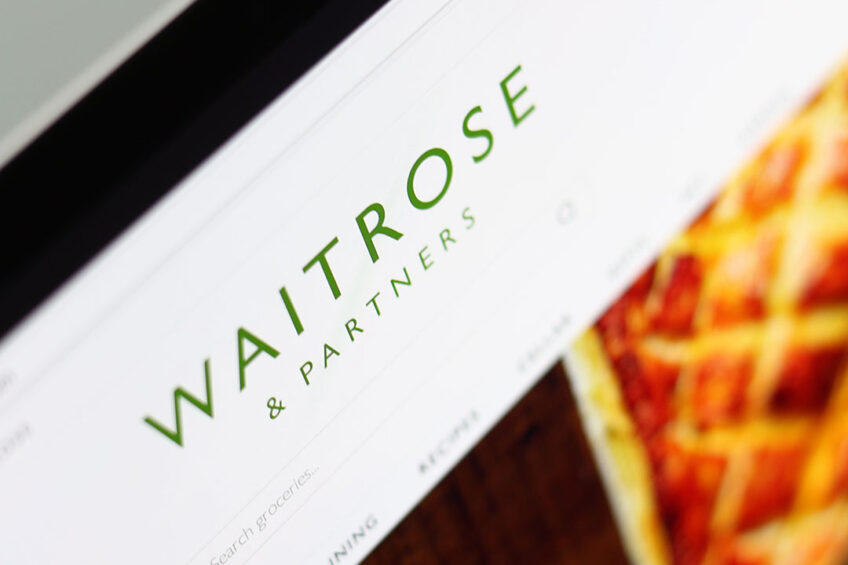Positive signs of global change reflected in farm animal welfare awards

UK supermarket Waitrose has won Compassion in World Farming’s Best Retailer Innovation Awards for its involvement in the development of a ground-breaking animal welfare app.
QBA app: Improve animals’ quality of life
The QBA app, launched last year is designed to continually improve animals’ quality of life, and covers chickens, laying hens, ducks, pigs, veal calves and dairy cows. Once fully tested, the app will be made accessible to other companies and their supply chains for the future benefit of all animals.
It’s a different way to observe the birds – we’ve never considered the emotional expressivity of the birds before.
Jenna Harman, farm liaison officer for Stonegate, said the app had brought a totally new perspective: “It’s a different way to observe the birds – we’ve never considered the emotional expressivity of the birds before. It is really easy to use when walking around the shed, you get a graph to show how the birds compare with other flocks. It is a totally new way of considering livestock – about building a picture. You can compare lots of different flocks – the same flock at different points of the day.
Welfare: Measure it, prove it, benchmark it
“We know our farmers really care about the welfare of their livestock – this is a way for them to measure it, prove it and benchmark it against other farms. This allows us to communicate to Waitrose to demonstrate that our flocks have a good life.”
Professor Wemelsfelder, senior researcher at SRUC, said: “This award is a fantastic recognition of Waitrose’s pioneering work in making farm animals’ emotional well-being a key aspect of managing animal welfare standards. It has been enjoyable, interesting and productive to collaborate with their supply chains in developing and testing the app, and see their high animal welfare standards at work.”
Benefits to the lives of farm animals
Dr Tracey Jones, Global Director of Food Business at Compassion, said Waitrose had won the best retailer award as it had shown the best example of a successful project or innovation that has delivered measurable benefits to the lives of farm animals.
Other award winners:
Carrefour Brazil: who became the first major retailer in Brazil to be awarded a Good Egg Commendation for their own-brand cage-free egg commitment, driving the market for better hen welfare in a region where most eggs come from caged systems.
Carrefour France: also won a Good Chicken Award for showing significant progress in the transition to the European Chicken Commitment (ECC) across their fresh and frozen chicken.
Severine Fontaine, Carrefour quality director, said: “We are pleased to receive this award, which symbolises the transformation work started 3 yeas ago with our partners, particularly on our “Oui au Mieux” chicken. We would also like to thank our partners from AEBEA and LIT Ouesterel, because thanks to the collective work carried out on the animal welfare label, we are able to indicate the animal welfare rating on our products, and thus inform our customers about these advances and enable them to make an informed choice.”
Italian retailer Cortilia: became the first in their sector to receive a Good Chicken Award in Italy. The e-commerce business has become the reference point for consumers who want to buy high quality, local and seasonal products. Cortilia meets the on-farm criteria for the ECC for more than 50% of their fresh chicken, which includes the use of better breeds with higher welfare, the provision of more space to live, environmental enrichment to occupy the birds and natural light to stimulate activity.
Chinese company PianGuan Yong Ao: received a Good Egg Award for their cage-free egg production. The company owns 8 aviary barn systems housing a total of 160,000 laying hens, which they operate at a lower stocking density than the EU minimum legal requirements and without any combination systems, allowing more freedom of movement to the birds.
Hilltribe Organics Ltd: won the Producer Award in the Sustainable Food and Farming Awards. The firm is a high impact social enterprise formed to sustain rural farming villages in Thailand through organic and regenerative agriculture. It not only helps farmers get into production by supplying hens and feed but also helps market the organic eggs to consumers and retailers. By driving the organic egg market, HTO has helped reduce the use of chemical fertilisers and pesticides by 70 and 80%. Hens are raised in the hills with plenty of access to trees and shelter. There is no antibiotics used and HTO grows turmeric to improve the hens’ immune systems.












